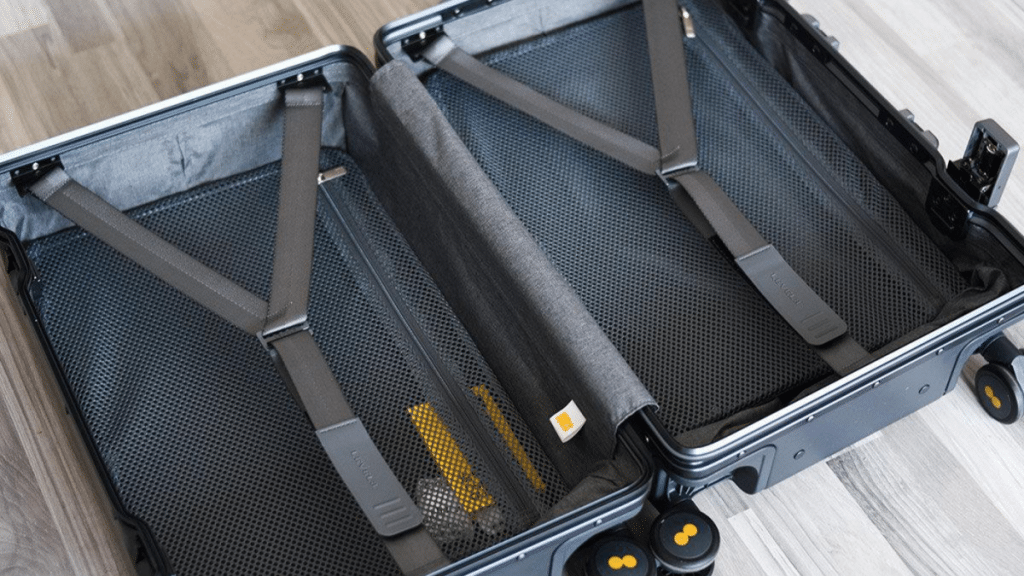Aluvox, a pioneer in luggage manufacturing, introduced a groundbreaking material in 2024: a blend of polypropylene and elastomer. This innovative composition offers a significant enhancement over traditional luggage materials, providing durability, flexibility, and lightweight construction without compromising aesthetic appeal.
A Legacy of Luggage Innovation
Since its inception in 1993, Aluvox has been at the forefront of luggage manufacturing, collaborating with renowned brands like Rimowa and Tumi. This partnership has fostered a deep understanding of the industry and facilitated the development of cutting-edge production techniques. Recognizing the evolving market dynamics, Aluvox expanded into plastic luggage production in 2008, focusing on materials like PP, ABS, and PC. Through extensive research and development, Aluvox has consistently sought feedback from both brand customers and end-users to refine its product offerings.
The Advantages of Polypropylene-Elastomer Blend
This innovative material boasts several key advantages:
- Enhanced Durability: The blend’s exceptional impact resistance, even in cold temperatures, ensures the longevity of luggage, minimizing the risk of damage during travel.
- Flexibility: The incorporation of elastomers imparts flexibility, allowing the luggage to withstand the rigors of travel without compromising its structural integrity.
- Lightweight Construction: The material’s low density significantly reduces weight compared to traditional options, making it easier to carry and potentially saving travelers money on baggage fees.
- Aesthetic Appeal: The “soft touch” finish provides a premium feel and appearance, akin to soft-sided luggage.
- Efficient Manufacturing: The material’s injection moldability enables a wider range of design possibilities and streamlined production processes.
Luggage Construction and Benefits
Aluvox leverages this innovative material in various luggage types, including zipper luggage, expandable cases, and reinforced frame cases. The resulting luggage offers:
- Improved Durability: The blend’s superior impact resistance and flexibility ensure the luggage can withstand the stresses of travel without breaking or cracking.
- Lightweight Design: The luggage is lighter and easier to carry, especially for frequent travelers.
- Enhanced Aesthetics: The “soft touch” finish and modern design provide an upscale appearance.
- Improved Functionality: Features like expandability and multiple handles enhance convenience for travelers.
The Future of Luggage Materials
Polypropylene-elastomer blends represent a significant advancement in luggage materials, offering durability, flexibility, and lightweight construction. As the travel industry continues to evolve, there is a growing demand for materials that can meet the needs of small-volume production and offer versatility for multiple applications. Aluvox’s commitment to innovation positions it as a leader in developing cutting-edge luggage solutions that cater to the evolving needs of travelers.
PP, PC, ABS Comparison
PP (Polypropylene), PC (Polycarbonate), and ABS (Acrylonitrile Butadiene Styrene) are all popular choices for luggage materials due to their specific properties. However, different characteristics lead to differences in their use in luggage. The functions and lifespans of luggage made of these three materials vary greatly. The following are the differences at the application level.
PP in Luggage
Pros:
- Resists chemicals well.
- Handles shocks and bumps okay.
- Light.
- Cheaper than PC or ABS.
Cons:
- Might not last as long as PC or ABS.
- Can get brittle in really cold weather.
PC in Luggage
Pros:
- Very strong and resistant to damage.
- Handles extreme heat.
- Looks clear and modern.
- Keeps its shape well.
Cons:
- More expensive than PP or ABS.
- Can get scratched easily.
ABS in Luggage
Pros:
- Handles shocks and bumps well.
- Resists heat okay.
- Keeps its shape well.
- Often used with other materials to make it stronger or more flexible.
Cons:
- Might not last as long as PC.
- Can get brittle in really cold weather.
Out of these three materials, PP is the most popular for luggage, but it has some flaws that keep it from being used in high-end bags. New mixed-up materials have fixed those problems.
